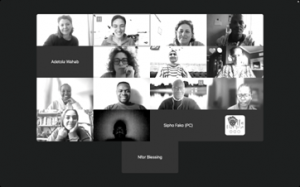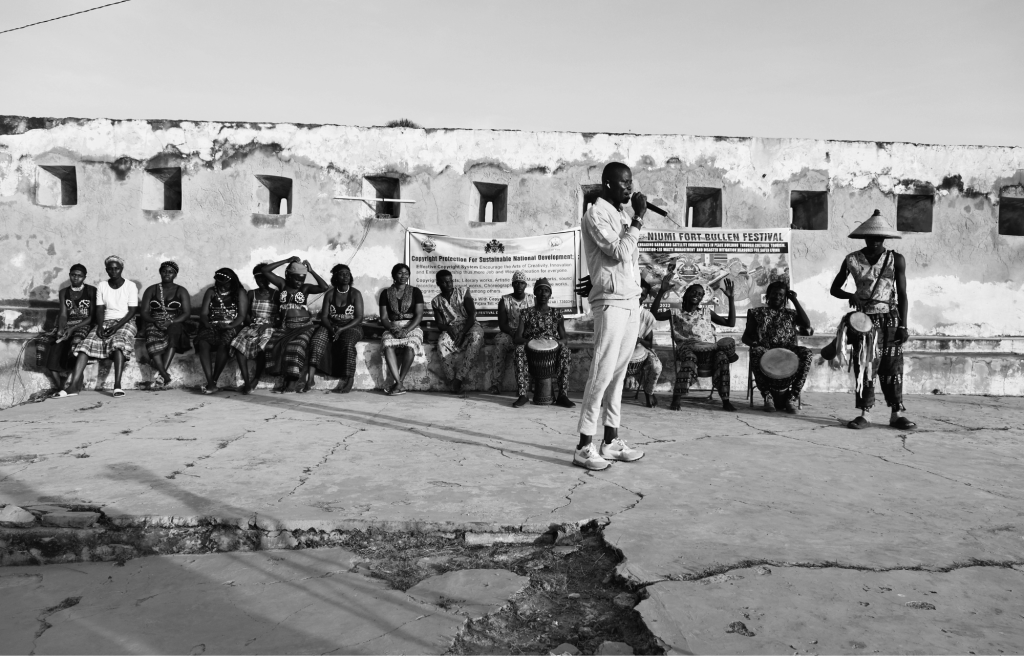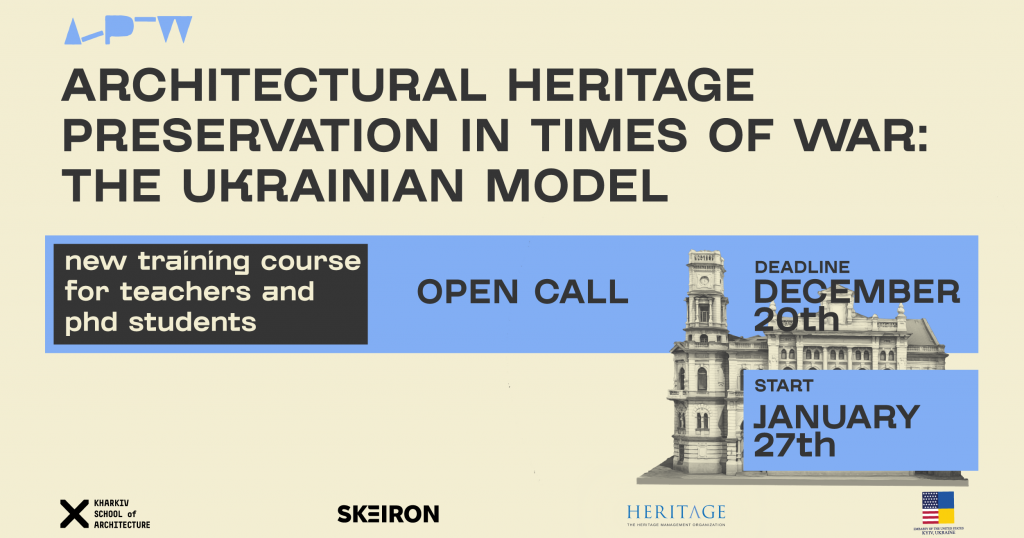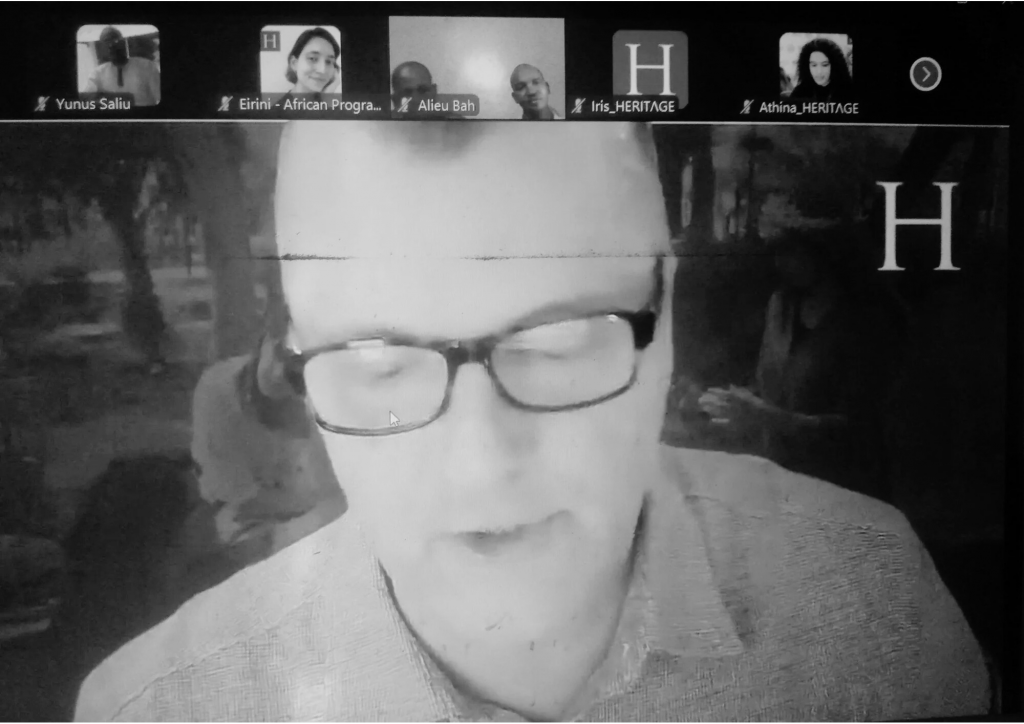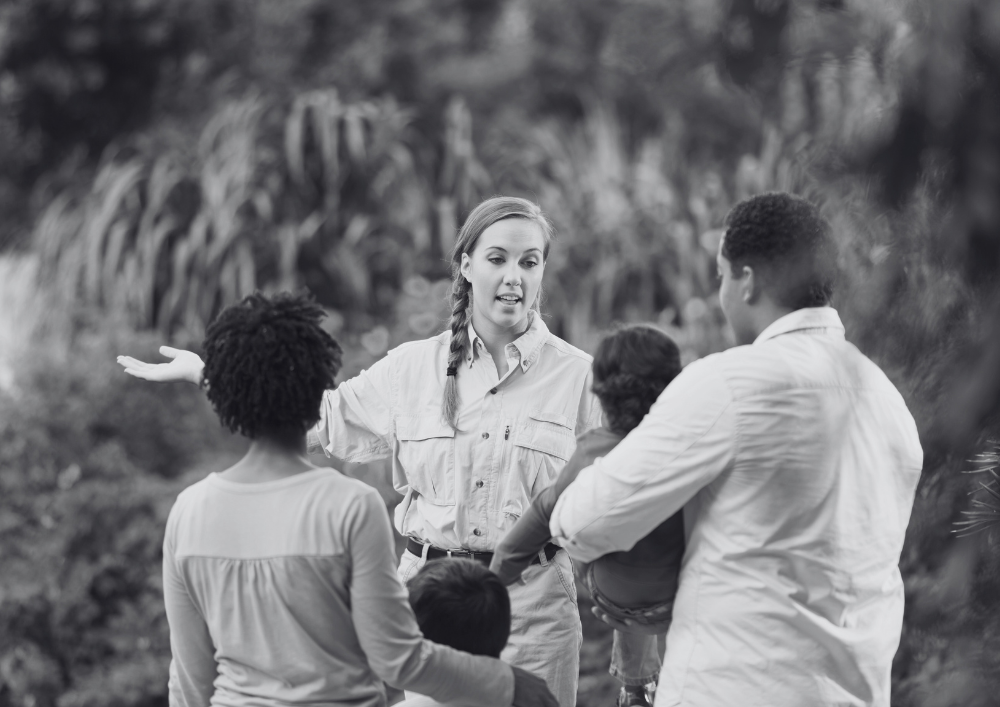: Workshops
Communication Strategy and Strategic Marketing for Cultural Organisations Online Training Programme
22 participants joined us in March for the Communication Strategy and Strategic Marketing for Cultural Organizations training programme. The course was led by Derwin Johnson, an independent senior communication consultant with more than 30 years experience as a journalist, communication executive and educator. Derwin guided participants through the three day course which covered crafting effective communication messages, developing communication toolkits, managing media relations, and conducting crisis simulations.
Day one kicked off with a comprehensive introduction to content management. The instructor outlined key objectives such as crafting impactful messages, managing media relations, and preparing for crisis communication. Participants explored their organisations’ core identities, drafted mission statements, and developed key messages. Through presentations and personalised feedback, they learned how to tailor their communication to resonate with target audiences.
The most compelling aspect of this Heritage Communication course was its emphasis on the dynamic interplay between cultural heritage and modern communication strategies. The course effectively bridged theoretical foundations with practical applications, highlighting the role of digital media, community engagement, and policy frameworks in preserving and promoting heritage.
~Mohammad Idrees Tahiri, PM Senior Conservation Architect at Turquoise Mountain
On day two, the focus shifted to storytelling and media engagement. Participants were instructed how to think like journalists, considering news angles, timing, and audience relevance. They practised pitching stories via simulated phone calls, received guidance on writing letters to the editor, and explored traditional and digital PR tactics. The session concluded with the creation of communication maps to guide audience engagement across a range of platforms.
The final day concentrated on crisis communication. Participants learned how to respond effectively under pressure, developing clear, key messages reinforced by strong evidence. A crisis simulation exercise brought the theory to life, as teams navigated a mock media storm, fielding questions from the instructor in the role of journalist. The recorded sessions provided valuable feedback, strengthening their confidence and strategic thinking.
The instructor made the content easy to digest and online learning (over the weekend) manageable.
~Martha Mosha, Research assistant at Commission for Archaeology of Non European Cultures KAAK
The level of engagement throughout the workshop was excellent and it was great to see the enthusiasm displayed by participants. We look forward to seeing how these skills are put to use in heritage organisations throughout Africa, Asia and Europe.*
Read more about our upcoming workshops here.
*Afghanistan, Albania, Botswana, Cameroon, Ethiopia, Germany, Ghana, Iraq, Italy, Lesotho, Nigeria, Rwanda, South Africa, Uganda, United Kingdom
Project Management Workshop: 20 participants from 18 countries
In December 2024, 20 participants from 18 countries joined HERITΛGE for the Project Management for Heritage Managers workshop. This 3-day online course aims to equip attendees with essential project management skills, guiding them through the entire project lifecycle.
The course instructor, Tim Healing, started day one with a discussion on the concept of a project, how it differs from everyday tasks and the key qualities of an effective manager. He then outlined the project manager’s responsibilities and essential skills before going over common pitfalls to avoid, equipping participants to recognise and address these issues early. These skills were then put into practice with a group analysis of a case study. The teams used this example to employ the project cycle framework and identify and resolve challenges, before drafting their own proposals.
The projects will be well planned, organized and with clear budgets to attract donor funding. The projects will also be evaluated and risks clearly assessed to have greater impact to the intended beneficiaries.
Walugembe Muzaphalu, Executive Director at Kanungu Empowerment and Support Organization
On the second day, training focused on the need for a structured agenda, with task outlines and risk identification the priority. Tim also introduced the Work Breakdown Structure (WBS), Critical Path Diagram and the SPECTRES risk assessment tool. Participants then worked on the Niger Restoration Project case study, ranking risks, proposing solutions, and identifying which risks should be mitigated before starting the project, applying the risk management techniques and SPECTRES framework already outlined.
I have found good insights in how to manage my project already in progress and it benefits to improve the rest of my project activities.
Rediat Messele, Lecturer in Archaeology and Heritage Management at Aksum University
The final day began with a session on developing project budgets, explaining direct and indirect costs through a publication case study. Participants worked in groups on the Sudan Museum Project case study, identifying monitoring concerns and strategies to stay on track, followed by group presentations and feedback.
The discussions remained lively to the end, and it was clear that participants had gained skills which they felt confident in applying in their own careers.
Participants were from Albania, Botswana, Czech Republic, Ethiopia, France, Germany, Greece, India, Lesotho, Mexico, Netherlands, Nigeria, Pakistan, Palestine, Portugal, Puerto Rico, Uganda, and the United States.
Read more about our upcoming workshops here.
Engaging Communities in Cultural Heritage Workshop
Over three days in October, fifteen heritage professionals joined our online workshop to learn more about engaging communities in heritage. Community engagement is one of the key strategies in heritage management and allows
HERITΛGE’s Aris Anagnostopoulos and Eleni Stefanou along with the Organization’s Director, Evangelos Kyriakidis, led the workshop, each working with participants on a different section and drawing on case studies from participants’ own work.
After an introduction into how local perspectives are essential in heritage conservation, participants explored the idea of values and examined how the values tied to heritage by the local community make these communities essential stakeholders in safeguarding the knowledge and importance of heritage sites. Over the course of the workshop, participants also learned techniques for engagement through ethnographic research, values identification, collaborative design and representation of the whole community, looking at case studies from around the world and in different types of sites.
“What I liked most about this course was how it showed the importance of involving communities in preserving heritage,” said eter Adewale Jegede, Curator at Nigeria-based On Your Mark. “I now have a better understanding of how to build trust, encourage collaboration, and ensure that heritage initiatives are inclusive and sustainable. This knowledge will help me design projects that respect community perspectives and create stronger connections between people and their cultural heritage.”
Ibrahim Hassan Gafar Ali Fadolr, Director at University of Nyala Centre for Darfur Heritage said that “Major benefits of this training course shall be used in better planning, implementation and review of performance in dealing with communities with different backgrounds, cultures and linguistic variances. ”
“We were lacking skills of how to bring communities at odd to work jointly together to achieve success on behalf of everyone,” he added.
HERITΛGE offers regular 3-day workshops on Community Engagement in Cultural Heritage, as well as an annual Summer Field School, held in Greece and online.
The Gambia: Community Tourism Planning & Development
From the 11th to 15th November 17 heritage professionals joined HERITAGE’s Community Tourism Planning & Development workshop that was organized in the framework of HerMaP Gambia, an initiative co-funded by the European Union that aims to enrich the understanding and appreciation of Gambian cultural heritage while enhancing the capacity of key stakeholders in the cultural and tourism sectors.
Tim Healing led the online course which was aimed at helping heritage professionals build the knowledge and skills necessary to develop sustainable community tourism projects. Through these projects, key stakeholders from the Gambia Tourist Board, Institute for Travel and Tourism of The Gambia, Juffureh Heritage Village Museum, Senegambia Stone Circle Tour Guide Association, JJB Kankurang Festival Committee as well as Independent participants, were encouraged to also address issues such as how to promote cultural preservation, economic empowerment, and environmental sustainability.
Participants worked on case studies from projects including Lamu in Kenya, Raqchi in Peru, Tourism Development in the Mursi Community of Ethiopia, The Green Valley Community Tourism Project, Managing Tourist Impact on the Cultural Events of the Maasai Mara Community, The Phong Nha-Ke Bang National Park, and the Community-Based Tourism Initiative in Vietnam.
By focusing on community resource mobilisation, partnership building, financial literacy, and effective branding, the workshop aimed to equip participants with the knowledge and skills to create authentic tourism experiences that support local development while increasing awareness of cultural heritage management . Participation with the workshop was lively with attendees demonstrating significant interest in the subject. Despite being online, the workshop was also highly interactive, combining discussions, presentations, and group exercises which fostered an engaging learning environment. The collaborative activities encouraged the sharing of ideas and best practices, ensuring the content resonated with participants and was applicable to their local contexts.
“The workshop benefited greatly from the participants’ hands-on experience in community tourism, which added depth to the discussions and activities. Their practical knowledge allowed for a more insightful and relevant exchange of ideas, making the sessions both engaging and meaningful. I’m eager to see how they apply the strategies and concepts learned to further develop tourism projects,” said Mina Morou – HerMaP Gambia Project Manager.
*Tim Healing is our interim director of African Grants and capacity development officer, helping small heritage organizations in Africa develop an application and ensure they manage their grant efficiently. Tim has over thirty years’ experience working as a project manager and has a professional background in project management, community and NGO development.
Introducing the principles of quality heritage interpretation for site managers
HERITΛGE kicked off its 2024-2025 Online Workshop program with the Introduction to Heritage Interpretation for Site Managers workshop in early October. 19 participants from 15 different countries (Afghanistan, Botswana, Egypt, Ethiopia, Iran, Lesotho, Malawi, Namibia, Nigeria, Romania, South Africa, Sudan, Tanzania, Turkey, Uganda) attended the online course which aimed to introduce the principles of quality heritage interpretation and how these can be applied to a range of sites.
The course was led by Valya Stergioti, an interpretive trainer, planner and consultant who has run a multitude of heritage training interpretation workshops all over Europe. Penelope Gkini* delivered the keynote speech where she shared insights on Heritage Interpretation from her project in Armenoi village, Northwest Crete.
Heritage Interpretation provides a well-structured framework for non-formal learning, aimed at creating meaningful and unforgettable experiences for visitors. Over the course of three days, participants were introduced to the concept of heritage interpretation and through a combination of interactive exercises, group work, presentations and discussions, participants learned how to turn phenomena into experiences.
The 3-day intensive workshop was well received and participants were able to develop knowledge of how to provoke resonance in visitors of heritage sites and foster a greater respect for all heritage across a range of sites in different countries.
“I’ve loved everything of this course. Particularly that we were able to take part in all discussions. As a person who wanted to know more about Heritage I was pleasantly surprised on what it entails,” said Miriam Uithaler, from the Jounou Arts and Culture Foundation
“What I liked the most about the course is the opportunity it gave me to learn from other heritage site managers, to see the work that they are doing in their respective countries” said Pontso Masithela, from Sereti sa Makhoarane Heritage and Tourism Network. “It really inspired me and increased my love and appreciation for heritage management. My project is going to benefit greatly because now I have acquired new skills and knowledge on ways to effectively interpret heritage sites or objects. And I am going to share it with my colleagues.”

